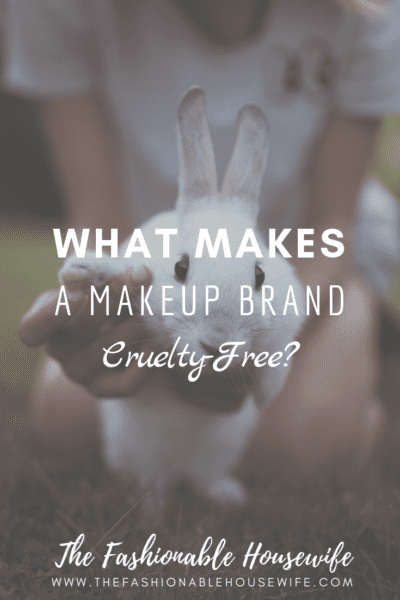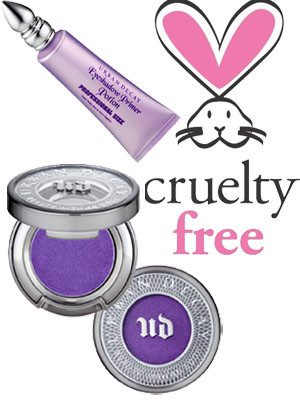
The beauty industry has seen explosive growth in recent years, but it has also spurred even more activities that involve animal cruelty. As responsible and compassionate consumers, it’s our job to make sure that we use products that are “cruelty-free” and “vegan”, and that we’re not supporting the cosmetic brands that profit from experimenting and testing on animals.
It’s important to know the difference between cruelty-free and vegan since these words are sometimes used interchangeably, which can be confusing. When a product or company is labeled as vegan, it means that none of the ingredients or products used are animal products or derived from animals. Cruelty-free, however, means that the ingredients and final product were never tested on animals.
What is a Cruelty-Free Makeup Brand?
When a makeup brand, like Urban Decay, has a logo that says Cruelty-Free, it means that everything in their product line, including lipsticks, mineral makeup foundations, eyeliners, eyeshadow palettes, and lip balms, has not been tested on animals. Furthermore, it certifies that all the ingredients used in the products were also not tested on animals.
Take note that products from cruelty-free brands may still contain animal ingredients, although this isn’t always the case. For more information on the specific ingredients used, it’s best to contact the manufacturer directly.
The Leaping Bunny Label
Most of the animal testing that occurs is at the ingredient level. Unfortunately, there are companies that advertise themselves as “Cruelty-Free”, but when you start digging around for more details, they actually mean that only the final product wasn’t tested on animals.
To be completely certain that a makeup company and its products are cruelty-free, look for the Leaping Bunny certification. The Leaping Bunny Program requires that no part of the development process, including the company, the laboratories, or ingredient suppliers, practice animal-testing.

To learn more about cruelty-free makeup and cosmetic brands, check out My Beauty Bunny.
People for the Ethical Treatment of Animals (PETA)
PETA is another organization that issues certifications to brands for cruelty-free products. They also issue certifications for products to be labeled as vegan. It’s one of the most widely recognized organizations in the US that’s dedicated to stopping animal abuse.
Sadly, there is no legal definition for what it means to be “cruelty-free”, which is why it’s better to look for the logos from certifying organizations instead. Searching for a logo from the two organizations we’ve mentioned above, The Leaping Bunny and PETA, is one of the best ways to guarantee that the products you’re using are free from any form of animal testing.
Why buy from cruelty-free brands:
They’re less toxic.
There are several advantages to choosing cruelty-free products, regardless if it’s for cosmetic, hygiene, or medical purposes. One of the main benefits is that the products are less toxic, on average. They’re free from potentially harmful substances such as phthalates and toxic perfume chemical ingredients.
They’re cleaner.
The brushes in cosmetic tools and products can harbor plenty of bacteria if they’re made from animal hair. If a brand uses synthetic hair, however, the brush will be more hygienic and easier to clean.
You’re helping make a better world.
Not only are you helping animal-conscious brands, but you’re also encouraging a trend of mindful shopping. It’s always good practice to question how our everyday products are made and what they’re made from.
The less you buy from companies that practice animal cruelty in their production process, the more they’ll consider adopting cruelty-free methods, as well.
Animal Testing Isn’t Necessary
The vast majority of the world doesn’t require animal testing on makeup products. These companies that practice animal testing are doing so to prove that they meet safety standards. In today’s world, there are more ways to test for a product’s safety. Both cosmetic companies and consumers need to adapt so we can get rid of animal testing in favor of more animal-friendly and earth-friendly methods.



